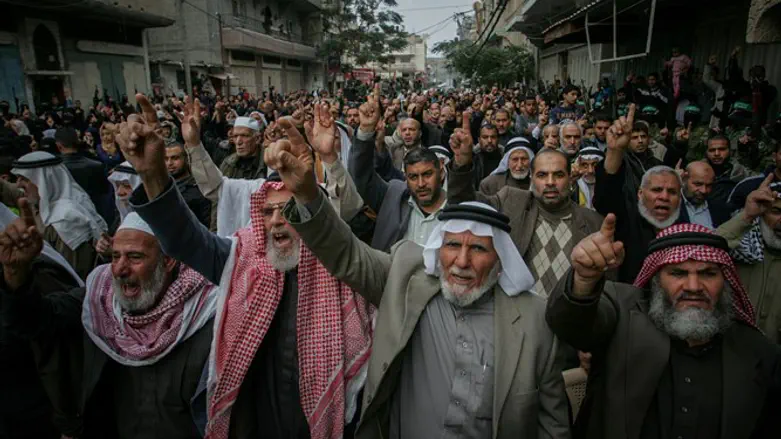
In what appears to be a sign of an emerging long-term cease-fire between Israel and Hamas, Gaza's civil servants will receive their first paycheck in months on Friday in a payout funded by Qatar.
According to the Ynet report, Qatar will pay Gaza's governmental employees their outstanding paychecks from the month of August. Within the near future, Gazans will also be paid for the months of September and October. The $90 million will be transferred via the United Nations and will not go to terrorists belonging to Hamas' Izz ad-Din al-Qassam Brigades.
The report indicates that a long-term cease-fire between Israel and Hamas appears to be gaining traction. A central part of the deal has been Qatar's efforts to rehabilitate the Gaza Strip. Qatar, which has poured billions into Gaza, is home to former prominent members of Hamas including ex-leader Khaled Mashaal.
The Al-Hayat newspaper reported on Thursday that Palestinian Authority Chairman Mahmoud Abbas has agreed to allow the truce between Hamas and Israel to go forward. For the first time in years, Israel agreed within the framework of the agreement to allow for increased exports from the Gaza Strip.
Palestinian Authority President Mahmoud Abbas opposed the move for many months, fearing that the agreement would perpetuate the Hamas regime in Gaza and would distance once and for all the PA from control over the Gaza Strip.
As part of the cease-fire, the so-called “March of the Return” processions will be restricted to 400 meters from the border fence and a safe passage between Gaza and Cyprus will be put in place after a lull in the region and an internal Palestinian reconciliation agreement is reached.
Senior PA officials told Al-Hayat earlier this week that Egypt is trying to reach a period of "calm" rather than a “ceasefire” as a temporary first stage before an internal Palestinian reconciliation agreement is reached, allowing for an agreement on a ceasefire.
The Egyptian mediation effort is focusing on improving the living conditions in Gaza, including in the areas of electricity and water supply, health services, increasing the fishing zone, creating jobs, easing the conditions at the Rafah border crossing and ending the violent nature of the weekly “March of the Return” border protests.